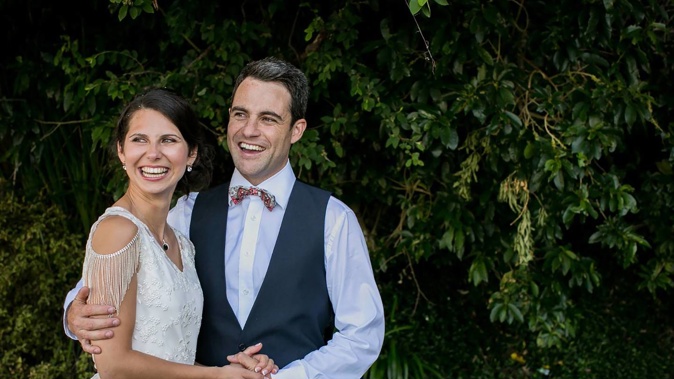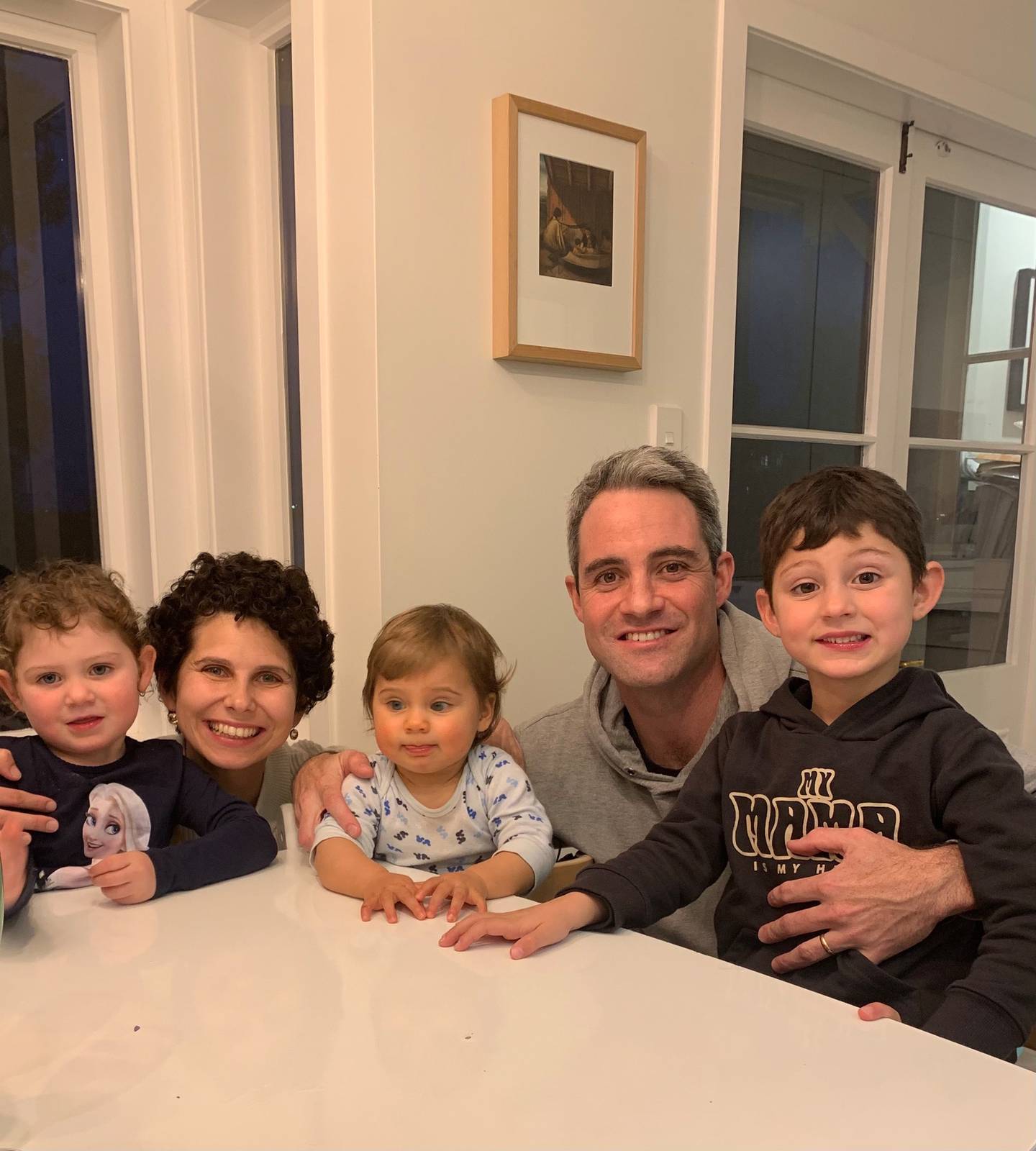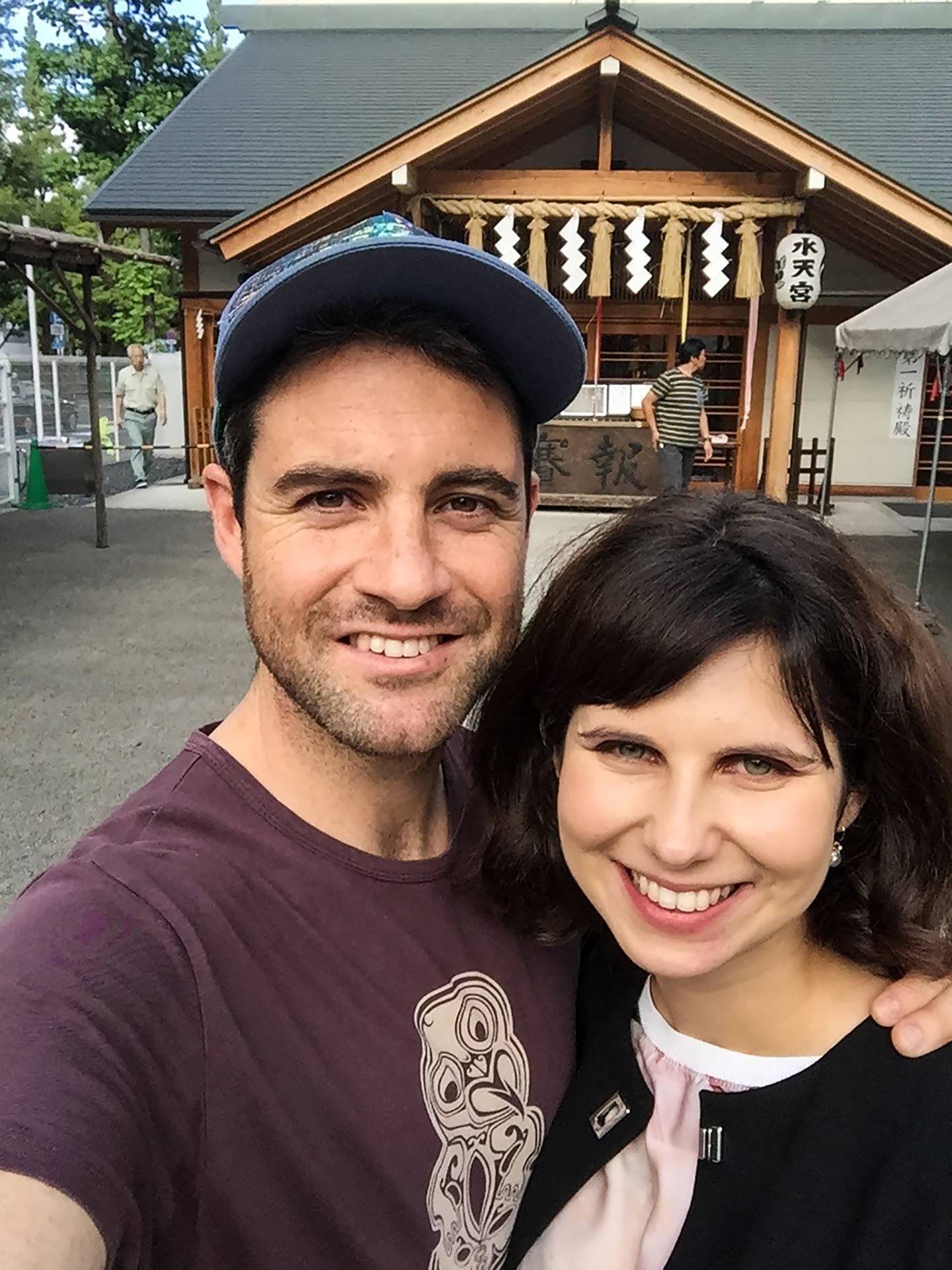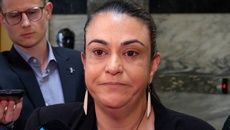
It was supposed to be a moment of happiness, the 20-week scan for a much-wanted third child.
Instead, Anya Reardon and her husband Nils were told an 8cm lump had been spotted in her ovaries, where it had already haemorrhaged five litres of fluid.
Within a week the Auckland mum was diagnosed with stage 4 small cell carcinoma of the ovaries – pulmonary type, and told she had a few months to live.
She survived 20, long enough to deliver her youngest child – and see little Viva's first steps – before dying aged 37 in November.
His wife knew her life would be shortened, but never accepted she'd die so soon, Nils Reardon said.
"I never got to say bye or thank you to her, because if I did, she'd just tell me to be quiet and go away.
"The last words Anya said were, 'Well, there's still hope'."
That hope would now be transferred to others, with Reardon planning to set up a foundation in his late wife's name.
He wanted the Anya Reardon Foundation to fund research into the cancer that took the life of his wife of nine years and to help other Kiwis access a US cancer profiling service they used.

Anya and Nils Reardon with their children, from left, Dora, 3, Viva 18 months, and Basil, 5. Anya Reardon was diagnosed with a rare form of ovarian cancer while pregnant with Viva. Photo / Supplied
Within two weeks of her cancer's discovery the two biggest lumps were removed and Anya began chemotherapy, but it didn't work.
The couple then found Los Angeles-based Nagourney Cancer Institute, which profiles cancer cells by putting them in petri dishes and testing cancer drugs they think might work against them, Reardon said.
"They found the form of chemo Anya had, she was 100 percent resistant to it … and they found there were two forms of chemotherapy out of 100 that were potentially going to work."
He wanted to help others access the profiling, which had cost the couple $7,475 and involved Anya's cancer cells being flown to the US in a chilly bin. Results took a week.
Their Kiwi oncologist, who he described as "amazing", "wasn't keen on it", telling them petri dishes couldn't mimic the body, Reardon said.
"She wasn't against it, but it was also part of us keeping our expectations down, I guess?
"But I was thinking, 'We've got nothing to lose - the first form of treatment didn't work, we'll try find one that might'."
The couple agreed with their oncologist's suggestion, backed by two other oncologists - including one from the institute – to first try immunotherapy treatment against the cancer.
But it continued to spread.
Standard chemotherapy drugs, along with those suggested by the Nagourney Institute, followed, but neither worked, Reardon said.
Cancer mutated over time, so the cells initially tested at the institute may have been different to those present when the last rounds of chemotherapy took place, he said.
He regretted not trying the institute-suggested chemotherapy before immunotherapy.
"By the time we got to the stage of doing chemo [again] it was just too late."
University of Otago academic oncologist Dr Christopher Jackson said in situ testing of cancer cells for their sensitivity to various drugs isn't new, but there are limits to its usefulness.
"How cancer behaves in the test tube is quite different to how it behaves in a human. And just because a cancer drug looks effective in a test tube doesn't mean it will be in a body."
Whether the drug could reach an affected organ, would be tolerated and how long it might work for – given cancers mutate and develop drug-resistance – also needed to be considered.
Researchers, including in New Zealand, were moving beyond test tubes to patient-derived xenografts, where tumour samples were put into mouse models, or organoids, where cancers were "grown up" in tissue cultures.
These showed promise, but weren't part of standard treatment because they were still "research and frontier", Jackson said.
"Until it's been tested … with phase three clinical trials … and shown to be better than our current approaches then it should remain research.
"In America, often these things are available commercially before actually they're validated … but I don't think that's the right way for New Zealand to go."
Patients had the right to choose "off-piste investigations and treatments" but should do so with their eyes open.
"People often say 'I've got nothing to lose', but the fact is they do. Whenever you forgo standard treatment, you're losing something. It's a stab in the dark."
Thirty per cent of Kiwis dying from cancer showed we desperately needed better treatments, Jackson said.
"Our success against cancer, whilst it's improved, we still have a very, very long way to go and research is a critical part of that, and investment in research and research infrastructure in New Zealand is important if we're ever going to make progress against that."

Nils and Anya Reardon lived overseas for several years, including in the US and Japan, before returning to New Zealand to start a family. Photo / Supplied
Reardon said he also wanted to encourage Kiwis to have adequate life insurance - he regretted not increasing their cover after Anya had an earlier health scare in 2018.
"We didn't have enough to cover our mortgage, which is my mistake when we bought another house."
It was still hard to believe Anya had died, he said.
A native of former Soviet republic Moldova, one of the poorest countries in Europe, she was educated in England after she began at age 9 writing to 20 UK schools asking for a scholarship.
She met Reardon at Waikato University – both were studying law – stunning her future husband when, as a student working three jobs while studying towards two degrees, she asked the chief executive at one job to loan her money for university, and allow her to work the bill off.
He agreed.
"She spoke four languages – she got a double degree in her second language. She got a first-class honours degree in literature and arts. She was quite a driven, career type of person.
"But once she became a mum, what I liked most about her is she changed her perspective on life 100 per cent," Reardon said.
"All she wanted to do was mum and create a nest for our family."
A Givealittle page has been set up to support the Reardon family. Donations can be made here.
Take your Radio, Podcasts and Music with you









